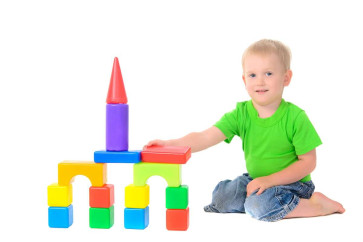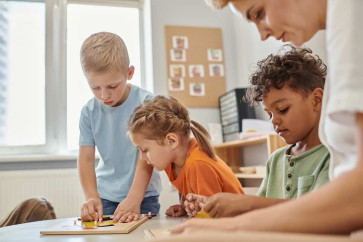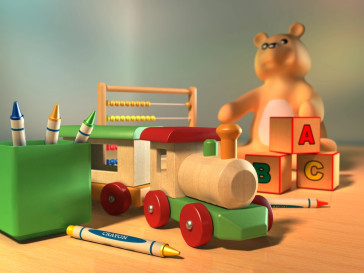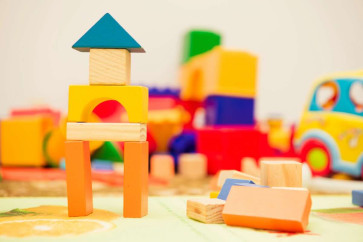Over the years, there have been many myths about toddlers that have been circulating in parenting circles. This misinformation is now available online and is spreading rapidly via social media platforms. So here are 10 popular myths about toddlers that you should stop believing in.
Myth no. 1: Toddlers are potty trained in three days
A lot of parents believe toddlers should be potty trained. However, potty training is like learning how to talk or how to walk. Therefore, every child goes through this system differently, at their own pace. So, it is important to follow your child’s readiness cues without pushing them to a specific goal. There is no need to worry if your toddler is still not potty trained. Moreover, parents often believe that the entire process of potty training requires only three days. However, just like the right age of potty training varies for every child, so do the days required to get potty trained. In a nutshell, there is no fixed amount of time required to potty train your toddler, as it varies from child to child.
Myth no. 2: Toddlers are too young to be disciplined
Studies show that children, even at the age of one, can understand simple commands followed by gestures. So, of course, if you explain yourself calmly, then you can successfully make them understand your point. Toddlers are never too young to understand the concept of rules and the consequences of not abiding by the rules.
Myth no. 3: Comforting toddlers during tantrums will cause more tantrums
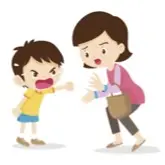
Parents often believe that if they comfort their children while throwing tantrums, they will be essentially rewarded for the tantrum by giving attention. However, what rewards the tantrum is when parents give in to the thing that the tantrum is demanding. Parents can help to regulate their toddler’s behavior by comforting them. As toddlers cannot self-regulate, they need to co-regulate with their parents to learn self-regulation. Therefore, it is highly recommended to comfort toddlers when they are throwing a temper tantrum. Once their tantrums are calmed down, parents should sit and talk to them about the whole situation and make them understand it is not a correct way to demand something.
Myth no. 4: Toddlers sleep through night
 A toddler’s sleep cycle does not resemble that of an adult. That means, unlike adults, toddlers cannot sleep for a longer stretch. One of the main reasons for their shorter sleep patterns is that toddlers dream more than adults. More dreams also increase the probability of nightmares, which is why toddlers wake up multiple times during the night.
A toddler’s sleep cycle does not resemble that of an adult. That means, unlike adults, toddlers cannot sleep for a longer stretch. One of the main reasons for their shorter sleep patterns is that toddlers dream more than adults. More dreams also increase the probability of nightmares, which is why toddlers wake up multiple times during the night.
Myth no. 5: The more the toddler eats, the healthier he/she becomes
Having a balanced diet is very important for your toddler’s health. But that does not equate to eating more to being healthy. When toddlers eat more, they are usually having snacks throughout the day that have high sugar and fat content. Excess sugar leads to obesity, dental cavities, diabetes, and high blood pressure among toddlers. Therefore, instead of serving snacks to your little ones throughout the day, parents should give them proper meals at regular intervals in the right proportion. Furthermore, the quantity of food does not determine the health of toddlers instead, the quality of the food intake matters. To keep your toddlers healthy, it is extremely important to give them all the right nutrients that are demanded by their bodies.
Myth no. 6: Toddlers can’t help parents with house chores
Parents often feel that toddlers are too young to help them with daily house chores and that toddlers might feel burdened because of it. However, finishing house chores gives toddlers a sense of accomplishment that, in turn, increases their self-esteem. It also teaches them life skills and responsibilities. Parents can also use this as an opportunity to connect with their children. Parents can easily ask toddlers to help them with housework by making it a daily routine. Just like they eat, sleep and play, parents can also add the responsibility of helping with house chores. Parents can give simple tasks to toddlers, like cleaning their mess after playing or putting their dirty clothes in the laundry by themselves.
Myth no. 7: Playtime is unproductive for toddlers
A very common myth is that when toddlers play, they are only having fun with zero learning. Although the truth is that playing is not just for fun, in fact, toddlers learn a lot while playing. Playtime for toddlers is a major key to their brain development and growth. Playing with toys not only increases the vocabulary of toddlers but also improves their social skills. Playtime also aids in a toddler’s physical development as it improves their motor skills and helps with their hand-eye coordination. Educational toys are a significant source of learning for toddlers.
Myth no. 8: Toddlers should be sent to daycare if they are not communicating well
There is a misconception that toddlers don’t communicate well if they are not exposed to other toddlers of the same age. It helps to be around other children. However, going to daycare or preschool doesn’t necessarily take care of the problem. A toddler who is already exhibiting some speech delay might be more frustrated in the new environment, as he/she will have to compete with more children. In addition, the fact is that if a child can’t communicate, he/she can’t socialize very well. So putting your child in daycare is not the best solution. Instead, parents should consult a speech therapist.
Myth no. 9: Teach toddlers to read so they can become geniuses
 Many parents feel pressured to make their toddlers read at an early age so they can become geniuses later in life. Scientists have found no proof that toddlers who are early readers do well academically. Teaching your child to read at a young age does not guarantee a higher IQ. Toddlers can also learn through other mediums, such as songs and toys.
Many parents feel pressured to make their toddlers read at an early age so they can become geniuses later in life. Scientists have found no proof that toddlers who are early readers do well academically. Teaching your child to read at a young age does not guarantee a higher IQ. Toddlers can also learn through other mediums, such as songs and toys.
Myth no. 10: Sitting too close to TV is bad for toddlers’ eyesight
In reality, sitting close to a TV doesn’t harm the eyesight of a toddler. Chances are that staring at a same spot might give toddlers a headache, but it won’t affect their vision. On the other hand, scientific research has shown that toddlers can focus on things close by without any eyestrain.
There you have it, 10 myths about toddlers that you shouldn’t believe. Hopefully, you will be able to debunk some of the common myths related to toddlers through this article.




